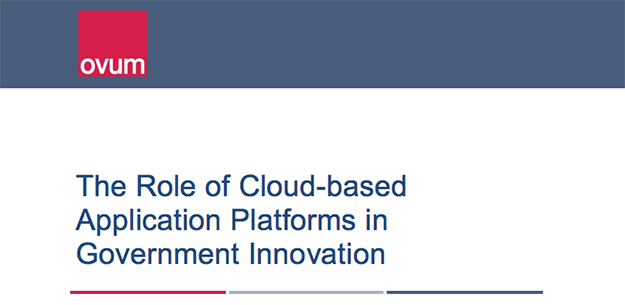Mobile apps. Web chats. Digital services. This is the future of local government in the UK, and Tandridge District Council is determined to be at the forefront of the wave of change. Stuart Mitchenall, Head of Business Services and ICT at Tandridge District Council, explains how digitisation is helping to enrich the citizen experience and to make local government budgets stretch further.
How are you preparing Tandridge District Council for the digital age?
I see my role as being a disruptive influence at the council: refusing to accept the status quo and finding new ways of doing things. Local government needs to be braver in its adoption of new technologies, and although we’re only a small district council, there’s no reason why we can’t be at the leading edge. When we first started using Salesforce at Tandridge in 2014, we were one of just a handful of councils that recognised the potential of cloud. Many more have now seen the art of the possible.
Why is digitisation important and how will it change service delivery?
Digitisation at Tandridge is about delivering the services citizens need, in the way they want to receive them. This means automation, self-service, and multi-channel capabilities. As well as improving the citizen experience, it will help us achieve our objectives to cut costs by 10% year-on-year for the next three years by increasing how efficient we can be. And we believe we will also provide a better service for those who can’t help themselves.
Tell us about some of the digital innovations you’ve already completed.
We’ve developed three apps for building control, online planning applications, and land charge searches, with more to follow. These apps not only enable self-service for citizens, but are helping us go paperless. Council officers no longer have to inspect buildings armed with camera, files, and paper checklist or manually type up notes when they return to the office - they simply complete a checklist on their iPads there and then. Photos taken with the tablet are automatically associated with the case and the council’s records are instantly updated. We’re actually talking to some neighbouring councils at the moment about using our apps as well.
What is the most important benefit of a cloud-based app development platform for you?
It’s got to be openness. You can adapt and integrate the platform to fit your organisation’s needs and goals. As a result, I’m constantly challenging the team to do new things that take full advantage of its capabilities, which is a completely new mindset. As Salesforce is so easy to use, council staff can create their own reports, update processes, and improve interfaces, which means we don’t have to pay for specialist developers. At the end of the day, most people like to do things themselves, and with Salesforce we can.
How did you begin your journey to the cloud?
I initially heard about cloud in 2006, and recognised straight away that it was the way forward. With a platform-as-a-service approach, we can simplify the development of new apps and features that improve the overall citizen experience. With a single flexible platform, we can challenge the traditional approach to IT and public service delivery in local government.
What advice would you give to other organisations embarking on digital transformation?
I’d recommend re-engineering your processes entirely, rather than starting with what you’re already doing. You need to start with the customer and consider what the organisation needs, not just which software to use.
We initially fell foul of the view that our new apps had to look and behave just like previous systems, but we now realise that wasn’t the best way to approach it. You have to start from the bottom up, and that frightens some people, but you can’t improve by doing things the same as before.
All the big successful names in industry have been forced to metamorphose to remain competitive and profitable: look at Barclays Bank, for example. We need to do the same in government; we need to rethink our approach to risk and be more accepting of failure – sometimes it’s the only way you can learn how to get it right.
By embracing rather than resisting change, local government organisations will not only be able to do more for less, they’ll be able to deliver better public services. To find out more about how Tandridge District Council is leading the digitalisation charge, read the full success story.
Ovum recently published a white paper titled The Role of Cloud-based Application Platforms in Government Innovation, that takes an in-depth look at how governments can tackle these trends, and use them to their advantage with a cloud-model. Download it here for free.








